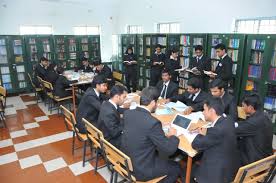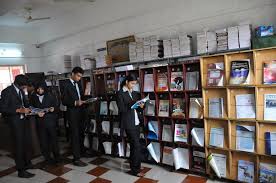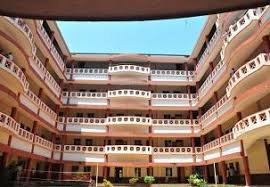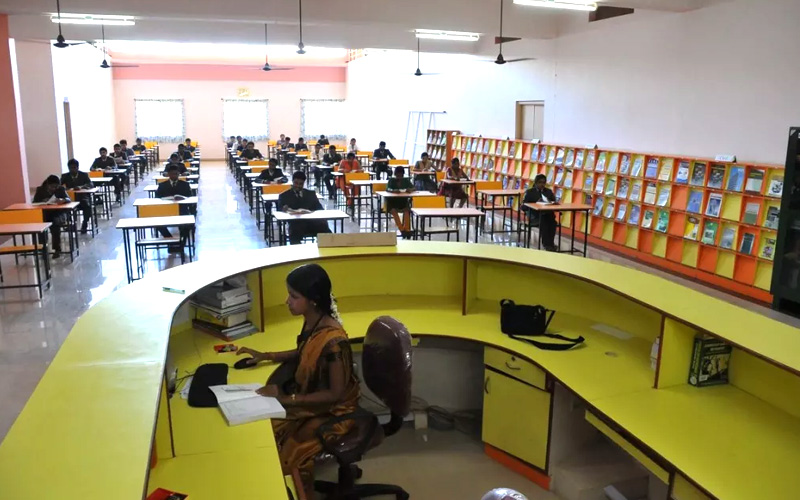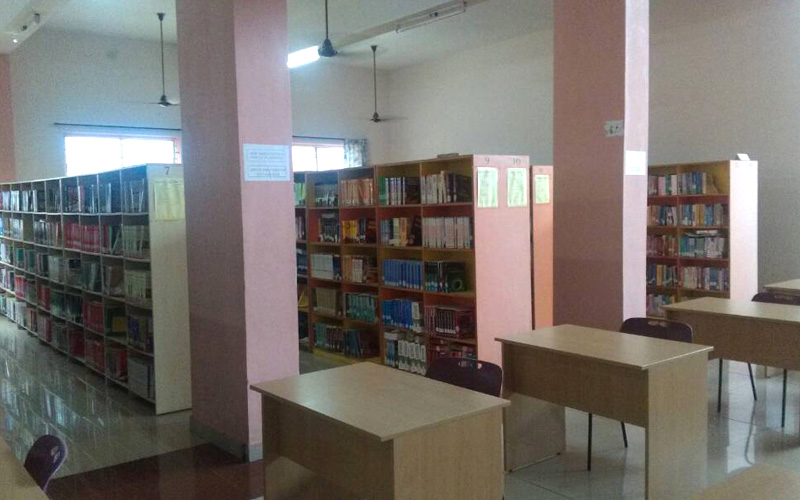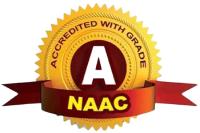LIBRARY
CENTRAL LIBRARY
The Aviation College library has been designed to enrich the learning process and to provide the material and resources to support the curriculum and general information needs of students, researcher and faculty of college. Library is located in ground floor at the campus.
In addition to books, professional journals and magazines, the library also provides on-campus access to a wide range of online resources. The library provides the necessary academic resources for all the aviation, tourism and management courses taught at the university. The library is also a popular study area for students, providing a lending service which allows them to borrow books and other resources for study at home.
U.G. Courses:
- BBA Aviation Management
- BBA (Aviation & Logistic Management)
Research Programme:
- Ph.D. (Aviation Management)
Working Hours:
- Monday – Friday: 8.30 AM to 7.00 PM
- Saturday : 8.30 AM to 5.00 PM
Library building:
Library building is planned on modular principles based on the requirements of the university library. The plan of the library building comprises the following areas.
- Circulation Section
- Stack Section
- Reference section
- Periodical Section
- Reading Section
- Circulation Section
Library Services:
- Books lending service (Borrowing facility)
- Books reservation/renewals
- Open Access Facility
- New arrivals
- Reference/referral Service
- Digital library
- Inter library loan
- Reprography
- Newspaper clippings
- Current awareness service
- Audio-visual facility
Circulation
Library has a large collection of books, periodicals, newspapers, manuscripts, CDs etc., all of which are available for lending to patrons and members of the Srinivas community for specified time periods. The library also provides quiet areas for studying as well as facilities for accessing electronic resources and the Internet.
Reference
Reference sources are great resources to use as you get started on your topic. They are not intended to be read cover-to-cover, but rather provide, you with more concise information as you begin to explore a topic. … Background information about a topic. These materials are usually used to find facts or provide broad overviews of topics. They should not be used as major sources for papers or other projects. Dictionaries, encyclopaedias, bibliographies, and style guides are some of the most common reference materials found in the Library’s Reference Collection.
Periodicals
The Periodicals Section is the place where needed information could be found in journals, magazines, newspapers, and other serial literature. COLLECTION: There is a growing demand in the areas of newspapers, journals and magazines research.
Audio-visual Collection
The Audio-visual Collection contains both online resources and multimedia items to borrow. The Library provides facilities for you to watch and listen to audio-visual material.
DVDs and Videocassettes
The Audio-visual Collection includes a large number of DVDs, which can be viewed on any of the computers in the Student Computer Suites.
Library Collection
The Library is well-stocked with a collection of books, periodicals with updated publications’ in major areas of Aviation Management, Aviation Resource Management Economics, Research, Marketing, Trade and commerce. Library holds both nationalized and International Journals.
CD/DVD Collections: There are Subject CD/DVDs available in various subjects under Aviation Management and other related subject area.
NPTEL Video Lectures: For the benefits of students and research scholar and faculty members Video Lectures downloaded from NPTEL cites and made available in Library. It’s very useful to students for their courses.
Study Materials Published Study Materials are compiled by faculty members of Institution according to syllabus both print and soft copies are distributing for the students for their study. It is student friendly and highly result oriented special program introduced in our college.
Project Reports: Students prepared Project Reports for the completion of Degree Programme for their Study. There are more than 300 such Project reports available in Library as a reference source.
Journals and Magazines: There are number of journals and magazines subscribed in library and made available for the purpose of students, researchers and Faculty members.
Online Resources:
Information and Library Network (INFLIBNET) Centre is an autonomous Inter-University Centre of the University Grants Commission (UGC) of India. It is a major National Programme initiated by the UGC in March 1991 with its Head Quarters at Gujarat University Campus, Ahmedabad. Initially started as a project under the IUCAA, it became an independent Inter-University Centre in June 1996.
INFLIBNET is involved in modernizing university libraries in India and connecting them as well as information centres in the country through a nation-wide high speed data network using the state-of-art technologies for the optimum utilisation of information. INFLIBNET is set out to be a major player in promoting scholarly communication among academicians and researchers in India.
Library is taken Institutional Membership of INFLIBNET N-List Programme. Under this users can avail facilities of E-Journals and Full text resources in various subjects.
National Digital Library of India: Library taken Institutional membership under this programme. It is very useful to students and faculty members to study and teaching resource. All the staff members made their registration, also given information about the usage of this to our students.
Eligibility:
Central to its mission is to serve the university’s students, faculty, and staff as well as researchers and alumni. Members of the community are also welcome to use the library’s facilities under the determined policy governing them.
All library patrons are expected to comply with the library use policies. These policies have been adopted by the Library Committee to govern the day-to-day operating procedures of the library. Failure to comply with these policies may be grounds for removal from the University’s library system on a temporary or permanent basis.
In addition to generally applicable policies and regulations regarding the use of university facilities and property, the following policies have been adopted by the Library Committee to govern the day-to-day operating procedures of the library:
Policy on the use of the Library
- The library is open to all members of the University community. Service is not be denied or abridged because of religious, racial, social, economic, or political status; or because of emotional, or physical condition; age; or sexual orientation. For a patron/user to qualify to borrow materials, he/she must be registered and have a valid Srinivas University ID card.
- Materials cannot be checked out until the ID card is issued.
- Members other than students and staff will not be allowed to borrow materials. They may however use the library for reference services only.
- All members are expected to carry their cards on them if they intend to check out items. An individual who ignores this expectation will be denied the privilege of checking out materials until he/she presents his/her card at the library.
- The use of the library may be denied for due cause such as failure to return library materials or to pay penalties, destruction of library property, disturbance of other members, or any other illegal, disruptive, or objectionable conduct on library premises.
User Responsibilities and Conduct:
- It is a member’s responsibility to maintain necessary and proper standards of behaviour in order to protect his/her individual rights and the rights and privileges of other patrons.
- If a member creates a public nuisance, that may be restricted from the Library and from the use of the library facilities. Those who are unwilling to leave or do not leave within a reasonable amount of time, after being instructed to do so by the staff, shall be subject to the rules and regulations of the library.
Loan Periods:
- A student may borrow two books for UG Students, and Three Books for PG Students at a time for two weeks.
- Generally, reference books do not circulate. Upon special arrangement, some reference materials may be checked out overnight.
- Books may be renewed once if there isn’t a waiting list for the title.
- Periodicals do not circulate.
The Librarian may establish the loan period for special collections or materials which are temporarily in great demand.
Renewals:
- Renewal requests are accepted for most books on the open shelves
- Renewals are granted unless the item has been recalled, is needed for reserves or has not been requested by another reader.
- Overdue materials are not renewable.
- Length of renewal depends upon the status of the borrower and type of material involved. This period is the same as the checkout date.
Noise Policy:
- All library users must therefore refrain from making noise while using the library
- The use of cell phones in the library is STRICTLY PROHIBITED.
Internet Usage policy:
The Library provides access to the Internet as a means to enhance the information and learning opportunities for the members of the university community. The library committee has established the Internet use policy to ensure appropriate and effective use of this resource. Access to the Internet is available to all students. However, this service may be restricted at any time if usage is deemed not to be consistent with established guidelines.
Channel of Complaint:
Users with complaints about other users can talk to any of the Library Assistants. On the other hand, if the complaint is about any of the Assistants, or about the non-functioning of any of the library systems and services, it should be made to the Librarian.
Departing Procedure:
All students, Research scholars and Faculty members are required to clear their library accounts with the Librarian and get the NO DUE CERTIFICATE (NDC) from the Librarian before graduating or leaving the University.
Salient features:
- Automated Library
- Audio-visual Section
- Wi-Fi Connectivity campus
- Library Website
- Digital Library
